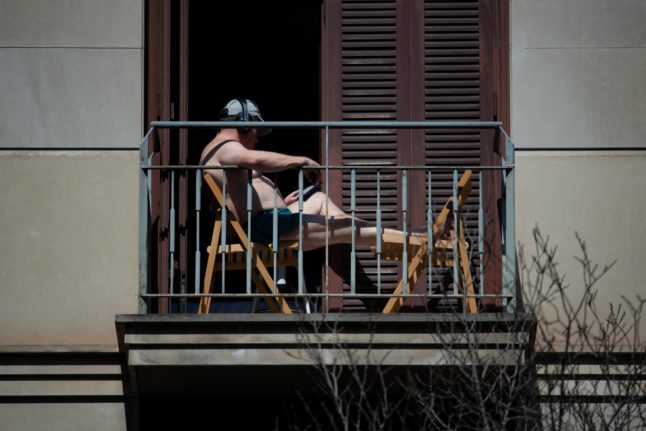Earlier this month, the Spanish Congress voted in favour of proposals to create legislation to crack down on prostitution, including harsher penalties for men buying sex and for those exploiting sex workers through pimping and trafficking.
With adverts for prostitutes, escorts, and euphemistic ‘massage parlours’ common online and around Spanish cities, as well as some women still working the streets in certain parts of town, prostitution certainly exists in Spain. But is it legal, or illegal? Or somewhere in the middle?
What is the current law, and what do the proposed changes involve?
The law
There exists no single law that deals directly with prostitution in Spain. Prostitution was decriminalised in 1995, however, and its related activities, such as pimping, trafficking, and sexual exploitation are still illegal, and dealt with in Article 188 of the Criminal Code:
“Whoever causes a person of legal age to engage in prostitution or to continue to do so, with the use of violence, intimidation or deception, or by abusing a position of power or the dependency or vulnerability of the victim, shall be punished with a prison sentence of two to four years and a fine from 12 to 24 months. Gaining profit from the prostitution of another shall incur the same penalty, even with the consent of that person.”
Simply put, selling sex is not illegal in Spain but forcing someone into doing it is, as is gaining financially from it, even if that person consents. There are also rules against prostitution “in areas of public transit, or close to places where minors are (such as schools and parks) or in areas where there is a risk to the road safety.”

Prostitution in Spain
Although the clandestine nature of the business makes accurate data hard to find, according to a 2011 U.N. report Spain is the third biggest centre for prostitution in the world, behind only Thailand and Puerto Rico.
In 2016 UNAIDS estimated that over 70,000 prostitutes were working in Spain, but some estimates put that number as high 350,000. It is believed that 80 percent of them are foreigners, with many reportedly coming from Colombia, the Dominican Republic and Morocco.
TAMPEP, The European Network for the Promotion of Rights and Health Among Migrant Sex Workers, completed a study in 2009 that concluded 90 percent of sex workers in Spain were migrants. It found that almost half (49 percent) come from Latin America, around a quarter (24 percent) from Central Europe, often Romania and Bulgaria, and 18 percent from Africa.
Similarly, it is believed that many of the clients paying for sex – those who would be facing harsher punishments under the proposed legislation – also come from abroad, particularly traveling businessmen and truck drivers who take advantage of the legal grey area Spanish prostitution sits in.
However one in three men in Spain has paid for sex at least once in their lives, according to a 2009 survey by the country’s state-owned Social Investigations Centre (CIS).
READ ALSO: Spain’s PM vows to ‘abolish’ prostitution
The proposed changes
The changes proposed earlier this month seek to further crack down on pimping and exploitation, and punish men purchasing sex, including harsher sentences if the victim is vulnerable or underage. The legislation, proposed by governing party PSOE, would not make prostitution outright illegal, but rather the exploitative activity that surrounds the business, and comes as part of broader attempts to reframe prostitutes not as criminals but as victims.
According to the draft, “agreeing to the practice of acts of a sexual nature in exchange for money or other type of provision of economic content will be punished with a fine of 12 to 24 months,” and makes clear that “in no case will a person who is in prostitution be punished.”
“In a democracy, women are not for purchase nor for sale,” Adriana Lastra, PSOE’s deputy secretary general, told Parliament.
After its introduction into Spain’s lower house earlier this month, 232 members from various political parties (including, crucially, both the governing PSOE and opposition PP) voted for the proposal, 38 against it and 69 abstained. The legislation will now bounce around the chamber as it is debated and amendments are suggested until it can be passed up to the Senate for confirmation.
The proposals have, however, caused some political debate. This is particularly true among feminists within the government, who are torn as to whether sex work is in itself exploitation or liberating, and maintain that the full scope of the legislation remains unclear.
Would the new law include strippers and exotic dancers, for example? This is unclear. So too is pornography, and popular payment websites such as OnlyFans.
It is hoped these interpretations will be ironed out during the debate and amendment stage.



 Please whitelist us to continue reading.
Please whitelist us to continue reading.
Member comments